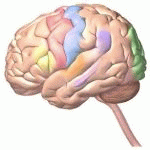Neurology
|
4 may 2012 20:07:43 |
| Lipopolysaccharide-induced neuroinflammation leads to the accumulation of ubiquitinated proteins and increases susceptibility to neurodegeneration induced by proteasome inhibition in rat hippocampus (Journal of Neuroinflammation) |
|
Tweet Background:
Neuroinflammation and protein accumulation are characteristic hallmarks of both normal aging and age-related neurodegenerative diseases. However, the relationship between these factors in neurodegenerative processes is poorly understood. We have previously shown that proteasome inhibition produced higher neurodegeneration in aged than in young rats, suggesting that other additional age-related events could be involved in neurodegeneration. We evaluated the role of lipopolysaccharide (LPS)-induced neuroinflammation as a potential synergic risk factor for hippocampal neurodegeneration induced by proteasome inhibition.
Methods:
Young male Wistar rats were injected with 1 muL of saline or LPS (5 mg/mL) into the hippocampus to evaluate the effect of LPS-induced neuroinflammation on protein homeostasis. The synergic effect of LPS and proteasome inhibition was analyzed in young rats that first received 1 muL of LPS and 24 hours later 1 muL (5 mg/mL) of the proteasome inhibitor lactacystin. Animals were sacrificed at different times post-injection and hippocampi isolated and processed for gene expression analysis by real-time polymerase chain reaction; protein expression analysis by western blots; proteasome activity by fluorescence spectroscopy; immunofluorescence analysis by confocal microscopy; and degeneration assay by Fluoro-Jade B staining.
Results:
LPS injection produced the accumulation of ubiquitinated proteins in hippocampal neurons, increased expression of the E2 ubiquitin-conjugating enzyme UB2L6, decreased proteasome activity and increased immunoproteasome content. However, LPS injection was not sufficient to produce neurodegeneration. The combination of neuroinflammation and proteasome inhibition leads to higher neuronal accumulation of ubiquitinated proteins, predominant expression of pro-apoptotic markers and increased neurodegeneration, when compared with LPS or lactacystin (LT) injection alone.
Conclusions:
Our results identify neuroinflammation as a risk factor that increases susceptibility to neurodegeneration induced by proteasome inhibition. These results highlight the modulation of neuroinflammation as a mechanism for neuronal protection that could be relevant in situations where both factors are present, such as aging and neurodegenerative diseases. |
| 417 viewsCategory: Neurology |
 Viral-toxin interactions and Parkinson`s disease: poly(I:C) priming enhanced the neurodegenerative effects of paraquat (Journal of Neuroinflammation) Viral-toxin interactions and Parkinson`s disease: poly(I:C) priming enhanced the neurodegenerative effects of paraquat (Journal of Neuroinflammation)The gamma-aminobutyric acid type B (GABAB) receptor agonist baclofen inhibits morphine sensitization by decreasing the dopamine level in rat nucleus accumbens (Behavioral and Brain Functions) 
|
| blog comments powered by Disqus |
MyJournals.org
The latest issues of all your favorite science journals on one page
The latest issues of all your favorite science journals on one page



